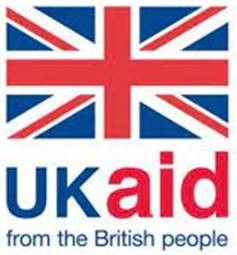Misinformation around COVID-19 vaccines in Syria, is there room to reduce vaccine hesitancy?: personal experience, observations, and anecdotal evidence
Eighteen months after COVID-19 was introduced in Syria, people have started to adapt to the new normal and living life with the virus while the Syrian government continues vaccinating some groups of society. The vaccines the government provides include the Chinese-made Sinopharm, Russian-made ‘Sputnik’, and ‘British’ AstraZeneca. The vaccines currently available in some public health centres are Sinopharm and Sputnik, with limited numbers of AstraZeneca vaccines reserved for second doses. Healthcare providers, elderly people, and those with risk factors such as chronic diseases or comorbidities, have been prioritised for vaccination in accordance with WHO/SAGE guidelines. However, Syrians inside the country are discussing and sharing misinformation about COVID-19 vaccines, their safety, efficacy, ingredients, side effects, and purpose. The most common are that :
- COVID-19 vaccines could cause dangerous side effects such as infertility.
- people could die from being vaccinated.
- COVID-19 vaccines could result in changes in the human DNA.
- COVID-19 vaccinations contain microchips that can be used to track and control people.
- COVID-19 vaccines contain pork derivatives/non-halal ingredients, or other misinformation that targets Islamic beliefs.
- the pharmaceutical industry has fabricated results of vaccine trials or covered-up harmful side effects to boost profits.
- this virus was developed in western laboratories to harm people in other countries or similar conspiracy theories.
Many people also believe that COVID-19 vaccines are ineffective in protecting them from infection, which suggests insufficient information may also be an issue along with false information.
Reasons behind creating and circulating false claims and rumours can include: (i) lack of trust between the public, local health authorities, and the Ministry of Health; (ii) insufficient communication or health education about the vaccine and its safety and efficacy, (iii) many information sources about the pandemic including unreliable but popular sources such as social media, and (iv) misuse of social media and other platforms or no fact-checking on the information shared.
The main sources of misinformation and rumours in Syria is social media, especially Facebook and WhatsApp, which are the most popular platforms for the Syrian community. It is worth mentioning that the same misinformation and rumours are circulating among Syrian health-workers as well. The main public health concerns caused by this is that they could lead to reduced COVID-19 vaccine uptake and coverage. As vaccination is currently the most effective way to reduce COVID-19 risk, this could have disastrous results in terms of high rates of infection, mortality, and the inability of hospitals to manage COVID-19 patient numbers due to the limited existing health system capacity.
Addressing misinformation should be a top priority among healthcare professionals and for the Syrian Ministry of Health, particularly given that the pandemic has not ended and new variants of the virus are being reported. We recommend that Syria’s public health authorities:
- become more transparent regarding the COVID-19 burden in Syria, vaccination strategies, vaccine safety and efficacy, and the benefits of vaccination.
- allocate trained advocacy, communication, and social mobilisation (ACSM) focal persons and funding crisis communication at national, regional, and primary health centre levels – especially in rural and displaced communities, to provide accurate information and community mobilisation to increase COVID-19 vaccines uptake.
- provide training, tools, and guidance to healthcare professionals on how to address misinformation and rumours.
- create a contextualised and trusted fact-checking process for vaccine information on social media platforms to ensure the public have access to accurate and reliable COVID-19 vaccine information.
Written By Dr. Nour Alhuda
M.D. Homs, Syria


